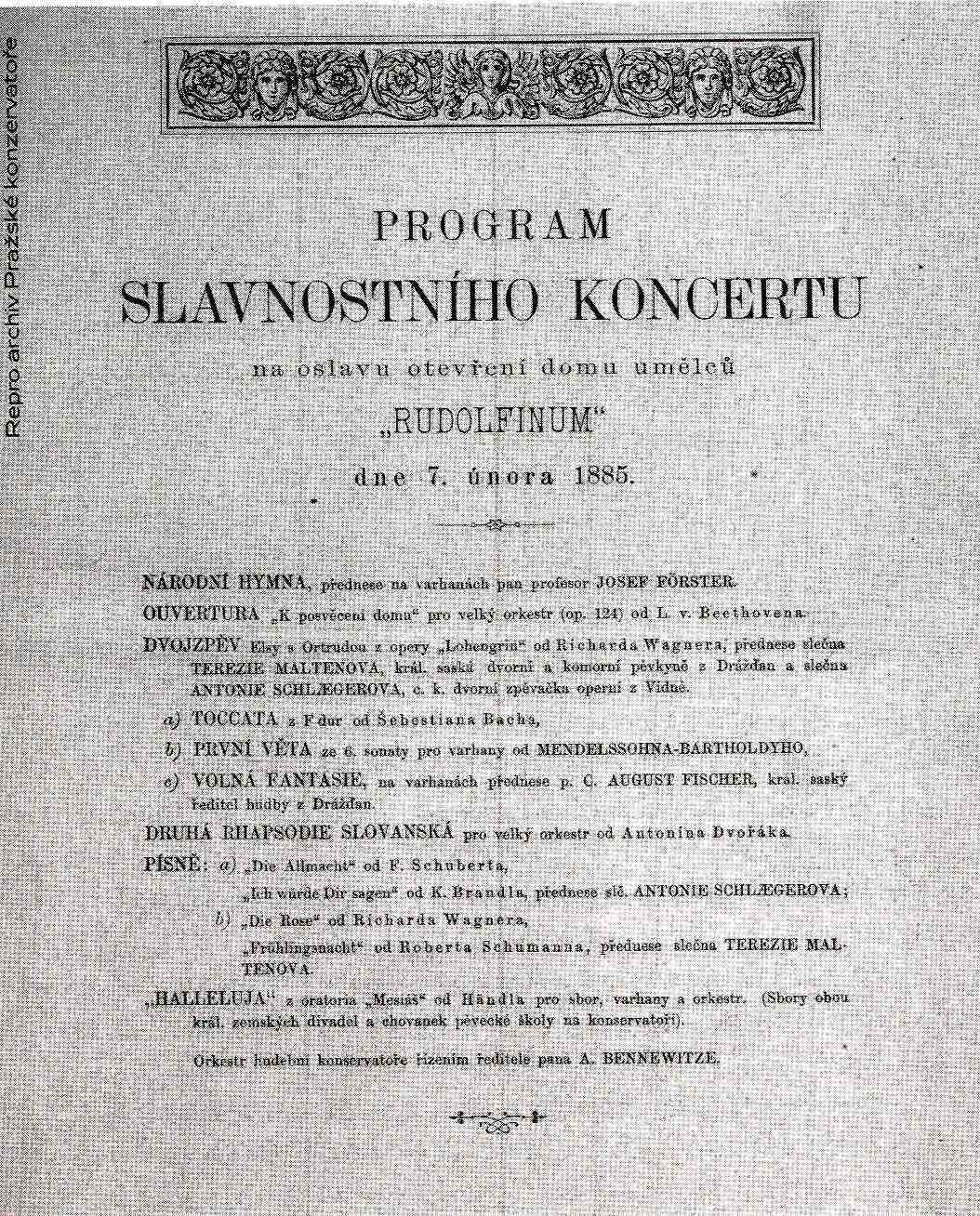|
Antonín Bennewitz
Antonín Bennewitz (also Anton Bennewitz; 26 March 1833 – 29 May 1926) was a Bohemian violinist, conductor, and teacher. He was in a line of violinists that extended back to Giovanni Battista Viotti, and forward to Jan Kubelík and Wolfgang Schneiderhan. Life and career He was born in Přívrat, Bohemia, as Antonín Josef Václav Benevic (his name is most often seen in the German rendering—Bennewitz) to a German father and a Czech mother. He studied under Moritz Mildner (Mořic Mildner: 1812–1865) at the Prague Conservatory from 1846 to 1852. He was subsequently engaged as first violinist at the Estates Theatre in Prague (1852–1861), as well as in Salzburg and Stuttgart. On 3 December 1855, he participated in the first performance of Bedřich Smetana's Piano Trio in G minor, Op. 15, at the Prague Konvict Hall, with Smetana himself as pianist and Julius Goltermann as cellist. In 1859, he performed in Paris and Brussels. In 1866, he became professor of violin in Pr ... [...More Info...] [...Related Items...] OR: [Wikipedia] [Google] [Baidu] |
Přívrat
Přívrat is a municipality and village in Ústí nad Orlicí District in the Pardubice Region of the Czech Republic. It has about 400 inhabitants. Přívrat lies approximately south of Ústí nad Orlicí, east of Pardubice, and east of Prague Prague ( ; ) is the capital and List of cities and towns in the Czech Republic, largest city of the Czech Republic and the historical capital of Bohemia. Prague, located on the Vltava River, has a population of about 1.4 million, while its P .... Demographics Notable people * Antonín Bennewitz (1833–1926), violinist and conductor References External links * Villages in Ústí nad Orlicí District {{Pardubice-geo-stub ... [...More Info...] [...Related Items...] OR: [Wikipedia] [Google] [Baidu] |
